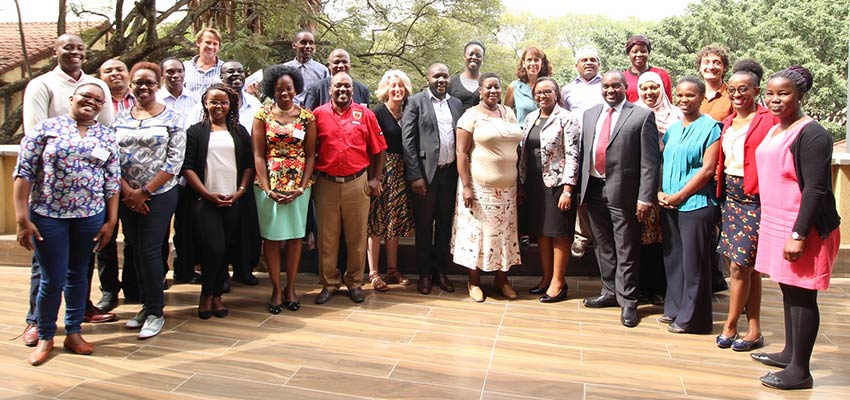
Adapted from original announcement on The Charcoal Project website
On May 8, The Charcoal Project (TCP) announced the re-launch of the Harvest Fuel Initiative (HFI) with a program in Kenya, supported by Mennonite Economic Development Associates (MEDA) with funding from Global Affairs Canada (GAC). D-Lab will contribute to developing standards for charcoal briquettes in Kenya, and provide individualized support and instruction on manufacturing, product performance, and lifecycle climate impacts for HFI Kenya cohort members. The Kenya program build on the prior success of the Harvest Fuel Initiative (HFI) Pilot and the Advancing Sustainable Charcoal Enterprises at Scale (AScHES) Convening in 2018, both joint programs from TCP and MIT D-Lab.
The focus of HFI Kenya will be on small and medium-sized producers and distributors of charcoal made from waste streams or renewable sources that reduce carbon emissions, help protect standing forests and provide low-cost cooking fuel options to consumers. HFI Kenya will provide: 1) training, mentoring and a 5-day convening for a cohort of 15-20 Kenyan charcoal briquette businesses, and 2) general training and support for the United Briquette Producers Association of Kenya. An important part of the program is promoting a community of practice for the sector. Applications are available here and are due May 29, 2020.
Government-imposed restrictions related to the Covid-19 pandemic are adversely affecting these producers; HFI will provide mentoring and technical support to these businesses to help them through this difficult period. The convening originally scheduled for July 2020 will take place when local public health officials deem it safe to do so. Likewise, all training and support will be virtual until travel and social distancing restrictions have been relaxed.
Support for this program has been provided by MEDA’s Equitable Prosperity Through Private Sector Development or Maendeleo Sawa (M-SAWA) Project funded by Global Affairs Canada. M-SAWA aims to contribute to Kenya’s economic growth and increase job creation by improving the business, environmental, and gender performance of small and medium enterprises (SMEs) and small entrepreneurs (SEs) in targeted counties and sectors.
Originally launched in 2013 by MIT D-Lab and The Charcoal Project, HFI enables the deployment of sustainable solid biomass fuels through the dissemination of appropriate technologies and knowledge to small and medium-sized enterprises. The joint D-Lab and TCP AScHES convening of 2018 brought together more than 20 briquette producers from seven countries to share technological and business approaches. HFI Kenya will leverage the strengths of TCP, MIT D-Lab, and MEDA to help entrepreneurs bring clean energy solutions to Kenya. These solutions will have a positive impact on the environment, energy access for the poor, and income generation for small businesses.
This initiative will also have a positive impact from a health and gender perspective, given that use of solid fuels in inefficient cookstoves is the primary cause of high levels of household air pollution (HAP). Women and children are the most affected by HAP because of their presence in the home and role in cooking for the family. In addition, women are primarily responsible for collecting firewood for cooking, which is time-consuming and puts them at risk of sexual and gender-based violence.
The Charcoal Project is a US-based 501c3 nonprofit organization focused on finding clean energy solutions to replace the use of unsustainable wood fuels in East Africa. Based at the Massachusetts Institute of Technology, MIT D-Lab works with people around the world to develop and advance collaborative approaches and practical solutions to global poverty challenges.
Contact
Dan Sweeney, MIT D-Lab Research Scientist

